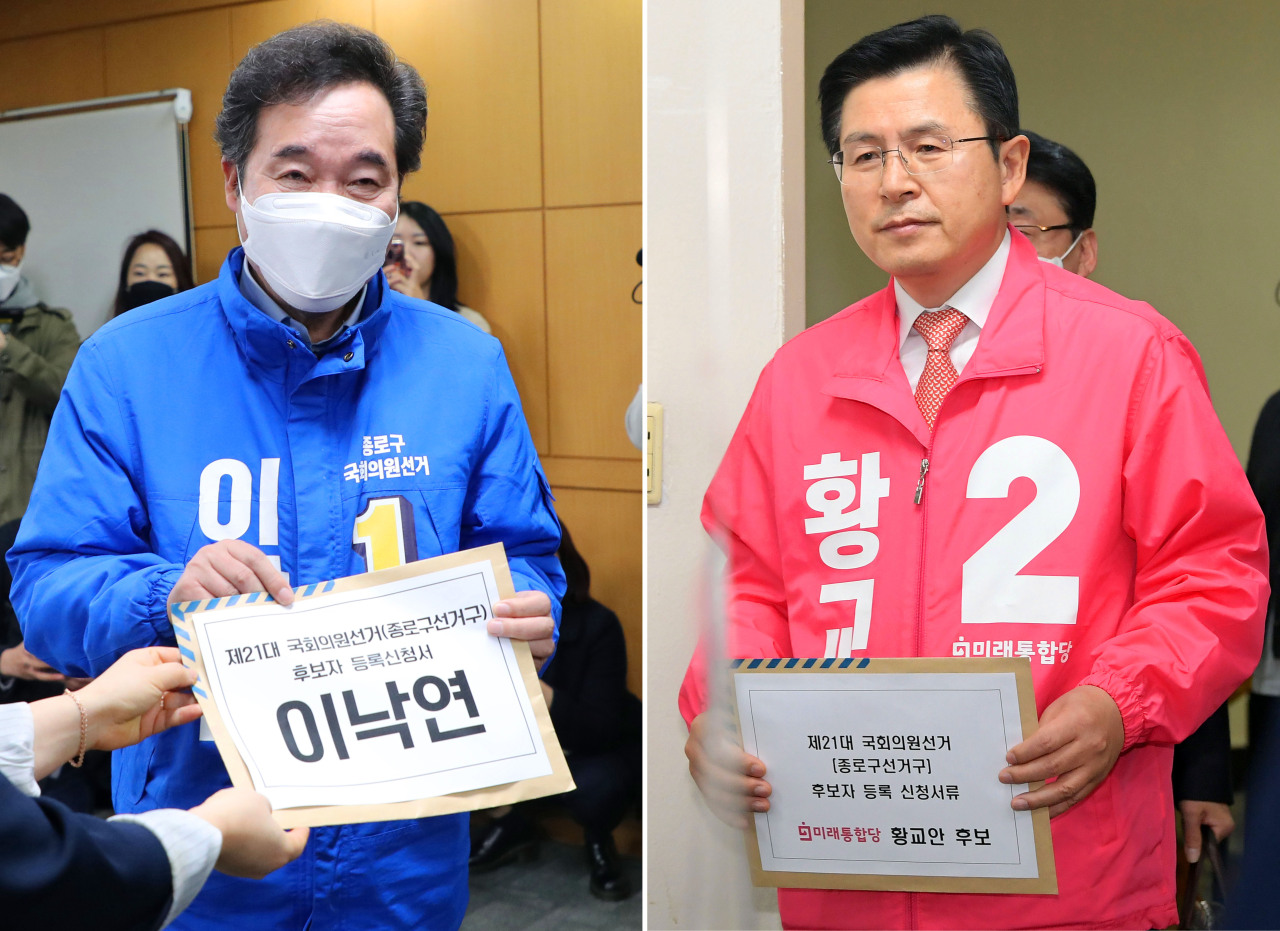Candidate registration for general election begins
By Park Han-naPublished : March 26, 2020 - 19:13

Candidate registration for the April 15 elections began Thursday -- at stake are 300 seats in the 21st National Assembly.
Largely overshadowed by the coronavirus outbreak, the poll outcome will shape the country’s political landscape two years before the next presidential election and serve as a litmus test of public sentiment for President Moon Jae-in and his liberal Democratic Party.
Currently, the Democratic Party controls 121 seats in the unicameral parliament, which is the largest bloc but falls far short of the majority.
The main opposition United Future Party holds 104 seats, respectively while other nine smaller parties and independent lawmakers take the remaining.
The National Election Commission will receive applications from candidates until 6 p.m. Friday. Updates on the candidate registration status are available on the NEC’s election statistics system (http://info.nec.go.kr).
Starting April 2, candidates can launch their official election campaign but until then they are only allowed run it in limited manner, such as distributing business cards and establishing election offices.
South Korean nationals aged 18 and above are eligible to cast a ballot during overseas voting period (April 1-6), early voting period (April 10-11) and April 15.
The general election is widely seen as a barometer for liberal President Moon’s midterm assessment and a skirmish of 2020 presidential election.
Public approval rating for the ruling Democratic Party stood at 45 percent this week, hitting the highest level of this year, according to data released by Realmeter on Thursday. United Future Party’s rating slipped to 29.8 percent.
Also on April 15, by-elections for 58 seats of provincial and metropolitan assemblies will take place.
By Park Han-na (hnpark@heraldcorp.com)









![[Hello India] Hyundai Motor vows to boost 'clean mobility' in India](http://res.heraldm.com/phpwas/restmb_idxmake.php?idx=644&simg=/content/image/2024/04/25/20240425050672_0.jpg&u=)









